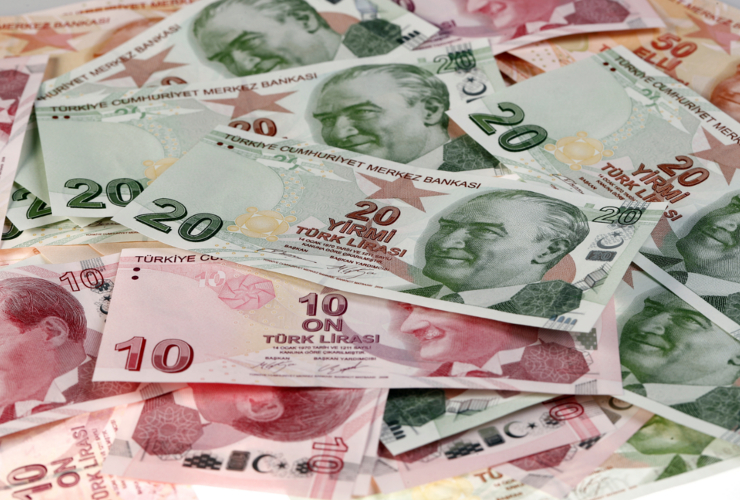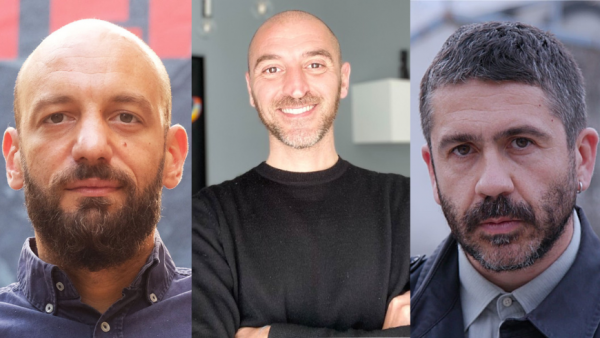Dec. 10, 2017 is international Human Rights Day, starting the lead-up to the 70th anniversary of the adoption of the Universal Declaration of Human Rights. To mark it, the International Press Institute (IPI) is publishing Direct Damage, a series of four articles by journalists in Turkey examining the impact that pressure on the media has on other aspects of democratic society. This article is the fourth and final entry in that series.
* * *
These days, if freedom of press and expression is under pressure in a country, it is natural to expect that trust in different aspects of that country will be shaken. However, Turkey, where freedom of the press is at stake, presents a different story. Investors’ confidence in the economy continues and investments still flow into the country.
While press freedom violations draw harsh reactions from foreign politicians, non-government organisations or observers, it appears that there has been no fundamental change in foreign economic operators’ attitude, so any reaction by investors in response appears to have been very limited, particularly in 2017.
It can be observed that foreign investors investing in Turkey value a continuity in Turkey’s relations with the EU and do not react harshly to violations of press freedom or free expression, a featured topic in terms of EU harmonisation.
The situation can be seen from the amounts of investments made in the period following press freedom violations, and, as a result, in the course of the Turkish lira.
Conditions of the state of emergency declared after the July 15, 2016 coup attempt further suppressed the freedoms of press and expression. While many broadcasting organisations have been shuttered, some journalists faced court cases and arrest.
After the coup attempt, short-term capital flow into Turkey diminished at first, as the attempt shook foreigners’ trust. However, despite that initial reaction, as the state of emergency persisted in 2017, foreign capital continued to flow into Turkey.
According to data from Turkey’s Central Bank, net inflow from foreign investors to Turkish stocks and bonds amounted to approximately $1.323 billion in the first quarter of 2017.
Foreign investors had a net positive inflow for Turkish assets, resulting in the appreciation of the lira. In early 2017, the lira was at a record low of 3.4915 to the dollar and the rate of exchange fell to below 3.6 in the quarter.
While press freedom remained under pressure throughout 2017, positive movement in investment figures, reflecting the reactions of foreign investors to the country’s degree of risk, continued year-round. Net inflow for Turkish assets was $4.761 billion in the second quarter and $4.409 billion in the third, for a combined total of more than $10 billion in the first three quarters.
Serious inflow
Looking back on past years, the inflow in 2017 is serious. Turkey had a $6.7 billion net outflow of capital in the first three quarters of 2015. During the first three quarters of 2016, within which the coup attempt took place, Turkey saw a $5 billion net inflow of capital. Notwithstanding everything that had happened, capital inflow during the first three quarters of 2017 was double that of 2016, even though the state of emergency continued and press freedom and free expression were under pressure.
Considering that investment decisions cannot be made on the basis of a single factor, it might be reasonable for foreigners to continue investing during such a period. Investors continue to fund other countries in which freedom of the press and free expression are under pressure. China, ranked at the bottom of Reporters Without Borders’ annual press freedom list, had a $45 billion inflow for its bonds in the first three quarters of 2017.
However, considering that press freedom and free expression are considered one of the most important topics in terms of Turkey’s alignment with the EU, violations of those rights might be expected to shake investor’s trust. While half of Turkey’s exports go to the EU, a significant part of its foreign investment comes from EU countries.
But according to representatives of foreign banks and investment institutions, amid pressure on press freedom and free expression, differing motives underlie investors’ decisions to invest in Turkey.
ABN Amro economist Nora Neuteboom says that she expects limitations on key freedoms to have an impact on the economy and on investors’ perceptions in the long term, but that other short-term factors outweigh those concerns.
Among the factors to which she points is Turkey’s high interest rate. Many developed countries have a negative rate, although developing countries still have relatively high interest rates, even if the U.S. Federal Reserve is on track to increase the rate.
But interest rates in Turkey appear relatively high. While the real interest rate has values of negative 0.4 percent in Japan, negative 0.82 percent in the United States and negative 1.48 percent in the euro zone, the real interest rate in Turkey is 4.15 percent.
Berenberg economist Wolf Fabian Hungerland makes a similar point. He says that hot money ignores the issues like freedom of press in a country, but that such problems blur the image of long-term foreign investment in Turkey.
Hungerland says that investors are worried about Turkey’s government becoming more hard-line, a result that press freedom can prevent, even if to a limited extent, and he says that the negative effects of limits on press freedom might become an issue.
More-influential factors
However, William Jackson, an economist who studies developing countries at Capital Economics, emphasises that monetary policy and global risk appetite in developed countries are, in general, more influential on investors’ decisions.
It is said that an increasing perception that accession talks between Turkey and the EU will not move forward also impacts foreign investors’ decisions, despite Turkey’s recent problems with freedom of the press. Some observers speculate that investors who believe Turkey’s EU adventure will not end in membership continue to bring hot money to the country in search of a return because they have become used to mishaps along that road.
Pual McNamara, investment director of GAM, a British investment organisation, says that press freedom is simply not important to investors, insofar as Turkey’s EU accession bid has substantially been abandoned.
“Considering China and Russia, freedom of the press is way down on the list of priorities for foreign investors,” he explains. “Both the EU and Turkey actually gave up on Turkey’s accession. So, this angle does not matter.”
Hungerland agrees that press freedom is important for Turkey-EU relations, but he notes that most observers expect little change. Turkey’s EU accession bid is not officially over, but it will not be joining the club anytime soon.
Looking at the full picture, despite violations of press freedom and free expression, foreign investors increasingly brought money to Turkey in 2017. The fact that they did so helped meet a deficit in the national economy; these capital flows make up a significant part of current deficit financing in Turkey.
As a result, press freedom and free expression violations do not carry any economic repercussions for Turkey. Foreign investors continue to invest, showing violations of those rights are not of primary concern.
Selcuk Oktay is a journalist who has worked for many media outlets, including Turkishtime and Deutsche Welle, since 2006. He is a Ph.D. candidate in journalism at Marmara University in Istanbul.
Opinions expressed in this article are those of the author and may not necessarily reflect the views of the International Press Institute (IPI).
The ‘pursuit’ of information in today’s Turkey



